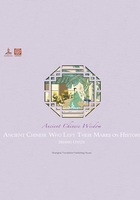
苏轼 Sū Shì (1037-1101)
A Rare, Versatile Scholar
Su Shi, also known by his pseudonym Dongpo, was a rare, versatile scholar of the Northern Song Dynasty (960-1127). Today, his poems, paintings, calligraphy and essays are still widely admired by millions of his fans all over the world.
Su Shi was born in Meishan in today’s Sichuan Province in southwest China. Both his father Su Xun and his younger brother Su Zhe were famous writers. At the age of five, Su Shi began to learn reading and writing from his mother, who was a well-educated woman. Thanks to his diligence and exceptional talent, the boy became well versed in the Chinese classics when he was only seven.
Su Shi passed the imperial civil service examinations to obtain the prestigious title of Jinshi (or “Presented Scholar”) when he was only 19. As a result, he later served in a number of government offices.
However, this highly talented scholar seemed to be always at odds with a political faction headed by the then prime minister, Wang Anshi. Su frequently wrote poems and essays criticizing Wang’s reforms, particularly the government monopoly on the salt industry.
Therefore, Su was banished several times and lived in political exile for many years in various places around the country.
But Su played a crucial role in the history of Chinese poetry. He founded a school of expressive poetry and he often combined vivid descriptions of natural phenomena with deep emotions and political ideas.
More than 2,300 of his poems and 800 letters have survived. Among them, Battle of Red Cliff, Jiang Chengzi, The Immortal by the River and quite a few other poems are deemed the most notable.

The first two lines of the “Battle of Red Cliff” are so popular that nearly every school student can recite them:
“The Great River flows to the east,
Washing away all great men known
in history with its rolling waves.”
His career as a public servant and his life in exile took Su to many parts of the country, and he left behind a rich trove of cultural heritage. Even today, many places have built pavilions, bridges, statues and memorial halls to exhibit Su’s poems, paintings, calligraphy and lyrics.
Among them, Hangzhou, the capital of today’s Zhejiang Province in east China, boasts a causeway across the famous West Lake, which is named after the scholar. During his four years in the city, Su was responsible for constructing the pedestrian causeway across the lake. Su also wrote many beautiful poems to praise the ethereal scenes of the city and its lake. In one poem he wrote:
“People tend to liken the West Lake
to the Lady of the West,
Plainly dressed or gorgeously adorned,
She always looks best.”
He took his pen name from a rural place called Dongpo (Eastern Slope), where Su lived during his first exile. Later the name was given to a famous dish, Dongpo Pork. According to legend, Su created the dish of stewed pork totally by accident. He actually overcooked the stew as he concentrated on a chess game and forgot what he was preparing.
Su died at 64 in Changzhou in eastern China after a long period of political exile.